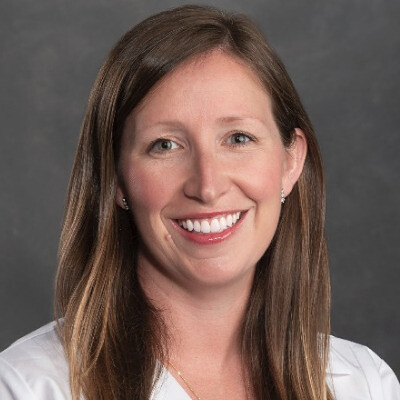Preparing students to be informed, open-minded, and engaged for large Interprofessional Education (IPE) activities that take place in the late afternoon or other unfavorable times can be challenging. Use of innovative, technology-inclusive approaches can help educators improve readiness for interprofessional collaboration. This presentation describes the model we adopted, shares lessons learned, and offers suggestions for improvement. IPEC 502 is a semester-long required IPE course for 500+ learners from medicine (MD), nursing (BSN) and pharmacy (PharmD) to learn about collaborative patient-centered care, quality improvement and patient safety with and from each other. Asynchronous individual learning and an individual readiness assurance test (IRAT) introduce students to the content they will apply in active learning exercises with their small interprofessional team during four 90-minute in-person sessions. Many learners perceive the preparatory activities as busy work. Narrated PowerPoint videos used in the past made the content more appealing, but the videos were long and dry. In 2025, we used a generative AI tool to create an informative, engaging, student-friendly podcast for each module to supplement static digital material. We captured reactions in our course evaluation survey, which was completed by 93% of enrolled students. Overall, 66% agreed or strongly agreed that the podcasts contributed to their learning, but the reaction varied by profession, with nursing students in greater agreement (74%) compared to pharmacy (62%) and medicine (59%). It is important to note that BSN nursing students were in the last semester of their program, whereas medical and pharmacy students were in pre-clinical phases of their curriculum. 171 students (37%) reported that they stopped listening to the podcasts after the first two modules. Reasons included: preferring to read (37%), preferring static slides (35%), and preferring multimedia (12%). 30% could tell podcasts were AI-generated, and 22% stated they were too busy or the podcasts were boring. While we assessed both Level 1 and Level 2 outcomes for the course using the modified Kirkpatrick evaluation framework, this presentation is focused on reaction (Level 1) to the podcasts. Quantifying measurable learning outcomes of student perceptions about specific teaching modalities is critical for preparing students for interprofessional collaborative practice by ensuring students will engage with the content, learn the material (Level 2), and ultimately be able to apply it in practice (Level 3). If they are not willing to engage, we need to know why!
In support of improving patient care, this activity is planned and implemented by The National Center for Interprofessional Practice and Education Office of Interprofessional Continuing Professional Development (National Center OICPD). The National Center OICPD is accredited by the Accreditation Council for Continuing Medical Education (ACCME), the Accreditation Council for Pharmacy Education (ACPE), and the American Nurses Credentialing Center (ANCC) to provide continuing education for the healthcare team.
As a Jointly Accredited Provider, the National Center is approved to offer social work continuing education by the Association of Social Work Boards (ASWB) Approved Continuing Education (ACE) program. Organizations, not individual courses, are approved under this program. State and provincial regulatory boards have the final authority to determine whether an individual course may be accepted for continuing education credit. The National Center maintains responsibility for this course. Social workers completing this course receive continuing education credits.
The National Center OICPD (JA#: 4008105) is approved by the Board of Certification, Inc. to provide continuing education to Athletic Trainers (ATs).
This activity was planned by and for the healthcare team, and learners will receive Interprofessional Continuing Education (IPCE) credit for learning and change.


Physicians: The National Center for Interprofessional Practice and Education designates this live activity for AMA PRA Category 1 Credits™. Physicians should only claim credit commensurate with their participation.
Physician Assistants: The American Academy of Physician Assistants (AAPA) accepts credit from organizations accredited by the ACCME.
Nurses: Participants will be awarded contact hours of credit for attendance at this workshop.
Nurse Practitioners: The American Academy of Nurse Practitioners Certification Program (AANPCP) accepts credit from organizations accredited by the ACCME and ANCC.
Pharmacists and Pharmacy Technicians: This activity is approved for contact hours.
Athletic Trainers: This program is eligible for Category A hours/CEUs. ATs should claim only those hours actually spent in the educational program.
Social Workers: As a Jointly Accredited Organization, the National Center is approved to offer social work continuing education by the Association of Social Work Boards (ASWB) Approved Continuing Education (ACE) program. Organizations, not individual courses, are approved under this program. State and provincial regulatory boards have the final authority to determine whether an individual course may be accepted for continuing education credit. The National Center maintains responsibility for this course. Social workers completing this course receive continuing education credits.
IPCE: This activity was planned by and for the healthcare team, and learners will receive Interprofessional Continuing Education (IPCE) credits for learning and change.
Learners can claim CE credit by completing the Daily Evaluation.



